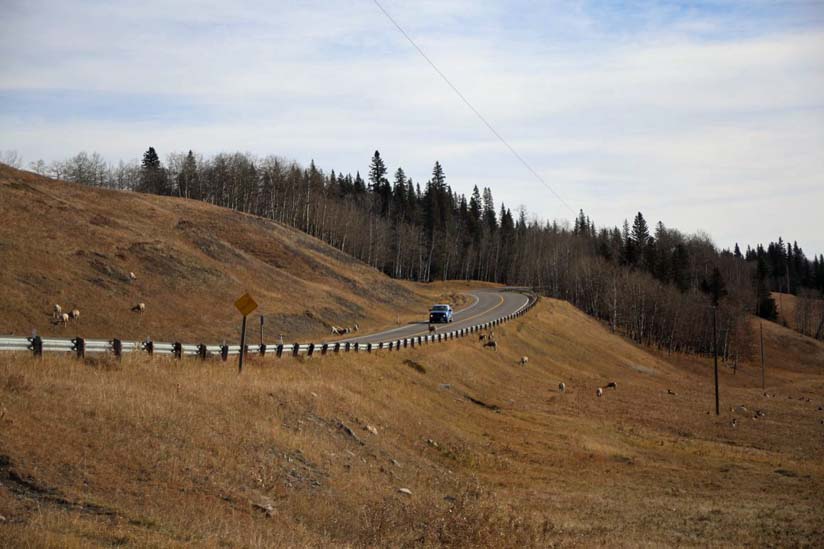
Banff Alberta - A proposed rail project that aims to connect Calgary's International Airport and Banff train station has raised
concerns among conservation groups in the province who have highlighted the environmental impacts it can have in the region.
The proposal has been presented to the Alberta Ministry of Transportation and Canada Infrastructure Bank (CIB) by Liricon Capital Ltd., the project's
main developer.
The project "will increase labour mobility, diversify Alberta's economy, and enhance the environment," according to a press release by the
main developer.
"The Proposal is structured as a public-private-partnership (P3), which contemplates financing from private and institutional capital and the
CIB.
That approach creates the opportunity for the Government of Alberta to leverage private sector capital and expertise and CIB financial support,"
read the statement.
The project has been endorsed by several government officials such as Cochrane Mayor Jeff Genung, Canmore Mayor Sean Krausert, as well as by Corrie
DiManno, Mayor of Banff, and Mayor Jyoti Gondek of Calgary.
"This will put Calgary on track to help meet our climate targets through sustainable transit, boost our economy, and provide a connection for
Calgarians to access the airport from downtown," said Gondek in a statement.
"The low-carbon rail line will be a game changer for the tourism sector, bringing visitors downtown to enjoy all that Calgary has to offer,
adding Banff as a bonus addition to their travel."
The announcement of the project has since raised concerns among conservation groups about the lack of attention to the environment and wildlife of the
area.
"The route would cross multiple ecosystems from the prairies to the mountains, potentially impacting dozens of species at risk and further
fragment important wildlife habitat," expressed a group of conservationists from the Canadian Parks and Wilderness Society (CPAWS) Southern
Alberta in a press release provided to the Gauntlet.
 The existing track has been there since 1885, what minor difference will another track make?
The existing track has been there since 1885, what minor difference will another track make?
The team is requesting to be part of the consultation process of the project to highlight the environmental impacts the project could
have.
The statement indicated that since 2019, conservation groups have raised concerns on the negative ecological effects a passenger train line could have
in the region.
"At the time, conservationists stated interest in forthcoming consultations, and seeing the results of Environmental Impact Assessments that
quantified the impacts to wildlife and their habitats," read the statement.
Tony Clevenger of The Bow Valley Naturalists highlighted a lack of transparency in the project.
"The consequences of doubling the rail line may lead to increased wildlife mortality, changes in gene flow, and ultimately impair the ability of
wildlife populations to persist over the long term. The speed at which this project is being fast-tracked and the lack of transparency should cause
alarm and deep concern for all Canadians," Clevenger said.
Moreover, Sarah Elmeligi of the Canadian Parks and Wilderness Society Southern Alberta Chapter said that conservation groups will not endorse the
project until the points they have raised are met.
"People come to these mountains to experience some of the best wilderness Alberta and Canada have to offer. Another rail line is likely to
negatively impact the very wildlife and landscape that attracts visitors from all over the world. We cannot support this project until there is more
transparency and environmental concerns become part of the conversation," she said.
The project, if approved and implemented, is expected to be finalized in 2025 and will have a total cost of $1.5 billion.
Albertans are estimated to pay around $20 per ticket.
Luis Armando Sanchez Diaz.
(there was no image with original article)
(usually because it's been seen before)
provisions in Section 29 of the Canadian
Copyright Modernization Act.
